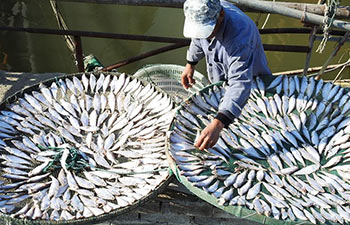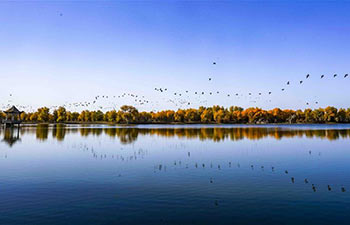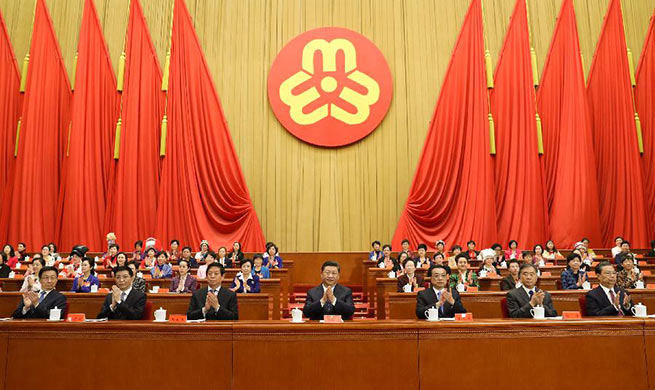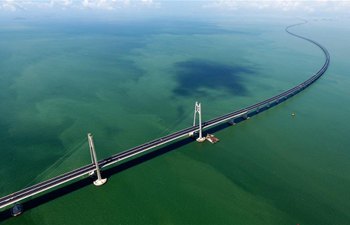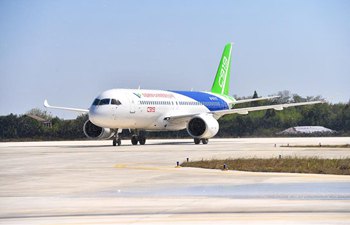WASHINGTON, Oct. 31 (Xinhua) -- U.S. National Security Adviser John Bolton said here Wednesday that he will give a speech Thursday on U.S. policy in Latin America. Media has reported that his theme will focus on Venezuela and Cuba.
Bolton tweeted that "tomorrow I will give remarks on President Trump's policy in Latin America at the historic Freedom Tower in Miami, Florida - I can think of no more fitting setting."
Bolton was reported to focus on U.S. policy on Venezuela and Cuba, so as to further press the two nations that the Trump administration have seen as adversaries, and to consolidate votes for the upcoming high-stakes midterm elections in the state home to many migrants from the two nations.
The venue is also symbolic, as the tower received many Cuban refugees in 1960s.
According to a report by Reuters, Bolton is expected to elaborate on the link between Venezuela's economic situation to "its Cuban sponsors," as part of U.S plans "to ramp up economic pressure on Cuba's military and intelligence services" and increase pressure on Venezuela.
U.S. President Donald Trump said in August of last year that he would not rule out a "military option" in Venezuela "if necessary," despite his aides' opposition. The U.S. side has announced several rounds of sanctions against Venezuelan government officials ever since.
Several U.S. media outlets reported last month that that the Trump administration has talked secretly with rebellious Venezuelan military officers several times to discuss their plans to stage a coup in the South American country.
For its part, Venezuela has slammed the "warmongering" declarations of Trump as "threats to peace" and a "violation" of UN and international laws, instructing the military to prepare to "shoulder arms" in case of a U.S. invasion.
Over 20 U.S. diplomats in Cuba suffered from what Washington called "acoustic attacks" between November 2016 and August 2017. The incidents led to the partial closure of the U.S. embassy in Havana, expulsion of 15 Cuban diplomats who worked at the embassy in Washington, and a halt to issuance of U.S. visas in Havana.
Cuba rejected the accusation, initiated an investigation, and urged the United States to present evidence of the alleged attacks.
Though denying the U.S. accusation, Cuba reiterated its commitment to cooperating with the U.S. authorities to clarify this situation and its willingness to guarantee the health and safety of Cubans and foreign citizens in the island nation.
